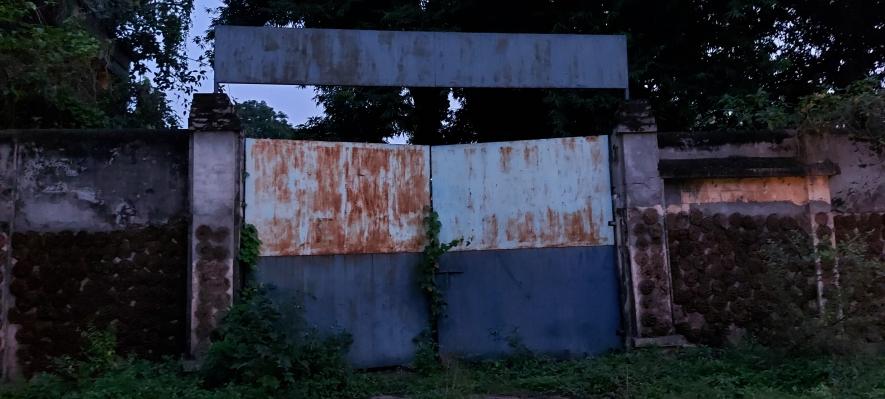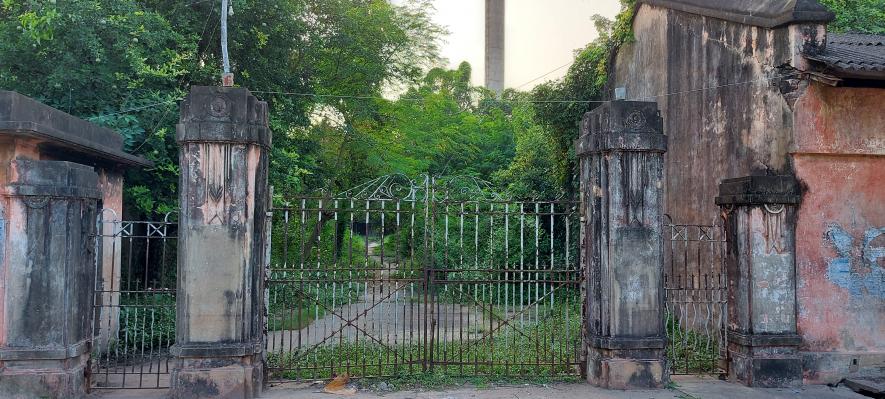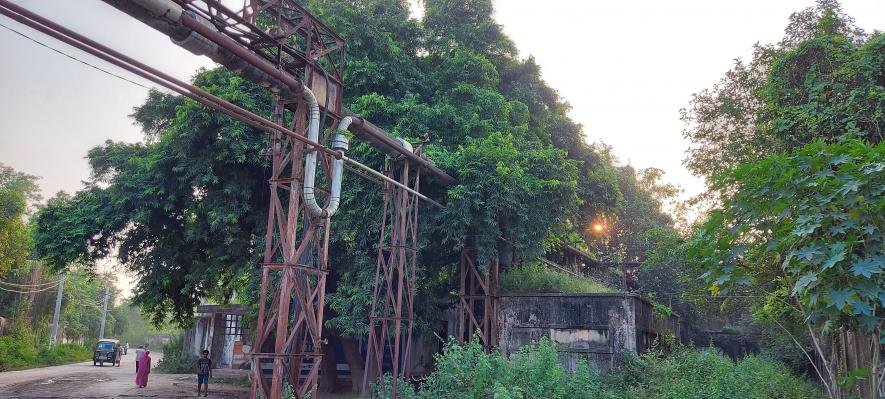Bihar Elections: Once a Crown of Industries in State, Dalmianagar has Become a Ghost Town

Sasaram (Bihar): A crown of industries in Bihar for nearly four decades, Dalmianagar — a massive industrial town Dehri-on-Sone in Rohtas district, with factories producing sugar, paper, vegetable oil, cement, chemicals, asbestos, vulcanised fibre and steel under the Rohtas Industries Ltd — now looks like a ghost town.
Established by Ramkrishna Dalmia, a doyen of business in 20th century India and founder of the Dalmia Group, Dalmianagar was developed into a massive industrial town by Shanti Prasad Jain, who had taken it over from his father-in-law. The company has been closed since the past 35 years.
The prosperity of Rohtas Industries — which had a private aircraft, a small airfield and a vast housing colony in addition to gardens, clubs, schools, market complexes and hospitals for its employees — started waning in the mid-1970s as the law and order situation in the district began to worsen.
As local mafia indulged in dacoity and abduction, executives and professionals slowly began to leave and the factories were mismanaged. Established in 1933, first with a sugar mill, the company shut down its factories in July 1984. Massive electricity bills of the company remained unpaid. There were irregularities in payment of salaries and wages to employees.
The company first closed down its sugar mill in 1968, rendering a large number of workers jobless. The impact was not that great, as permanent employees were absorbed in other units. Still, 1,500 workers lost their jobs. Of the total 12,629 workers engaged in Rohtas Industries prior to its closure, 10,312 were permanent employees and the rest 2,317 workers were either contract or casual workers.
The units were closed under the provisions of the Industrial Disputes Act, 1947, apparently for failure to pay off the dues on account of power supply to the State Electricity Board amounting to Rs 5.18 crore. The company did not even take the mandatory prior permission from the state government for closure.

The Supreme Court’s order that salary arrears to the employees up to the period of closure amounting to Rs 89 lakh be paid with highest priority was never implemented.
Former Bihar Chief Minister Lalu Prasad Yadav once tried to revive Rohtas Industries in 1990, when the company restarted operations. But it was permanently closed after three years.
“The cement manufacturing unit was made operational during Laluji tenure for three years. After that, no effort was made for its revival. We were hopeful when Nitish Kumar became chief minister, but he too failed us,” Vijay Kumar Sinha, who resides in the same housing colony, told NewsClick.
Dalmianagar hits headlines before every Assembly elections, with representatives of different political parties making false promises of reviving the industry. “Once the election is over, no one even bothers to revisit the promises they made,” he said.
“It was the biggest industry in the country after Tata Steel Plant. Had the government tried sincerely, it would have resumed operations when it was permanently closed, as there was ample scope for its revival. Nitishji did not do anything,” said Gorakhnath Vimal, who was working as a supervisor in the central engineering division of the company.
The workers of the company denied getting any relief and rehabilitation from the management, despite court orders. On the union’s plea, the Supreme Court had directed the management in May 1986 to pay arrears to employees. But the management pleaded its inability to pay owing to financial problems and sought permission from the court to dispose of the machines of the sugar mill worth Rs 33 lakh, scrap materials valued at Rs 30 lakh and finished goods worth Rs 30 lakh for paying the arrears. However, the plea was dismissed by the court.
Some of the creditors of the industry, meanwhile, approached the Patna High Court, seeking a direction for payment of dues by appointing a liquidator. Thereafter, the union moved the Supreme Court in January 1987 for directing the official liquidator for submitting a statement showing the value of the finished goods awaiting disposal and those which were disposed of by the management from the date of closure of the units.

The official liquidator submitted a statement to the court in March 1987, stating that the saleable value was Rs 91.77 lakh, while wages due up to the period of closure were Rs 89 lakh. The cost of finished goods sold by the management after the closure was estimated at Rs 9.42 crore.
Following the statement, the top court once again directed in April 1987 that the finished goods be sold without delay and employees paid their arrears. But nothing happened.
When Lalu Prasad was Union Railway Minister in the United Progressive Alliance-I (UPA) government, the Ministry of Railway acquired the entire 219 acres of the land owned by Rohtas Industries for setting up a wagon factory. However, work on this is going on at snail’s pace.
“Laluji is held responsible for the closure of factories in Bihar, but I ask Nitishji as to what he has done for revival of these industries? Except road and electricity, he has done nothing. Nobody becomes a good administrator by calling himself ‘Susashan Babu’,” rued Nagendra Pandey, whose father was an employee of the company.
Rohats is going to polls in the first phase of the three-phase Assembly elections, which is scheduled to begin from October 28.
The Dehri Assembly constituency, which has jurisdiction over Dalmianagar, has been represented by Basawon Sinha, president of the Rohtas Industries workers’ union, twice during 1951-57 and 1957-62 when he was associated with Socialist Party and Praja Socialist Party.
The Congress won the seat in 1962, 1967, 1969 and 1972. After joining the Janata Party, Basawon Singh once again registered victory in the 1977 elections. The Janata Party retained the seat in the 1980 elections, when Mohammad Iliyas Hussain emerged victorious. The Congress bounced back and registered victory in 1985 polls. Thereafter Hussain was once again elected thrice as legislator from here — twice as Janata Dal’s candidate in 1990 and 1995 and once as Rashtriya Janata Dal’s candidate in 2000.
Two independent candidates, Pradeep Kumar Joshi and Jyoti Rashmi, won from here in 2005 and 2010 elections. In 2015, Hussain won the seat. After his death, in the bypolls held in 2019, Bharatiya Janata Party’s Satyanarayan Singh Yadav won from this seat.
In this election, RJD's Fateh Bahadur Singh is said to be giving a tough fight to BJP's sitting MLA Satyanarayan Singh in the Dehri Assembly segment. There is a strong anti-incumbency against the BJP candidate, who runs a medical college in Sasaram. People allege that legal stone mining in the Kaimur hills in Rohtas district, which was a source of livelihood for lakhs of people, was stopped due to his pressure. The stone crushing units have been removed allegedly because his hospital is in close proximity to the hills. Singh’s alleged absence from his constituency during the lockdown has further enraged the voters.
Among the others in the fray are Pappu Yadav's Jan Adhikar Party (Loktantrik) and Mayawati's Bahujan Samaj Party.
Get the latest reports & analysis with people's perspective on Protests, movements & deep analytical videos, discussions of the current affairs in your Telegram app. Subscribe to NewsClick's Telegram channel & get Real-Time updates on stories, as they get published on our website.























